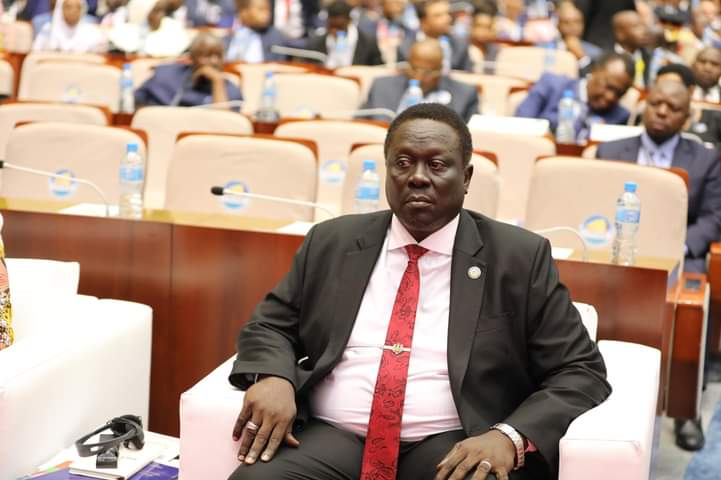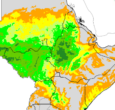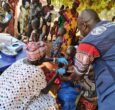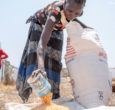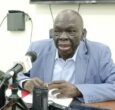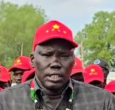The recommendations were made during the launch of the technical session at the Heads of State Summit on African Human Capital in Dar es Salaam, Tanzania.
They include prioritising education as a fundamental pillar for human capital development and the need for more support from regional and multilateral financial institutions.
Others are a collaboration between the government and private sector as well as the need for training institutions to bolster local capacities to efficiently manage and exploit natural resource endowment
Given the limited fiscal space of most African countries, Tanzania’s Vice President Philip Mpango called on multilateral financial institutions to devise innovative financing solutions in support of Africa’s drive to accelerate human capital development.
“Human capital investment is long-term in nature and thus requires low-cost financing with long-term maturity,” observed Dr Mpango as he officiated the technical session which is the key core for the long-awaited Heads of State Human Capital Summit that brings together the region’s leaders on Tuesday, July 25.
Further, considering the private sector being a key beneficiary of human capital development efforts, African governments should set the stage for active collaboration with the private sector.
“This meeting needs to discuss how best the private sector could be motivated to actively collaborate with governments as co-sponsors and co-producers of quality human capital,” said Dr Mpango.
Again, he believes that training institutions, being key players in human capital development, could and should help the continent bolster local capacities to efficiently manage and exploit natural resource endowment.
“It is ironic that the continent spends much of its financial resources to import knowledge for harnessing our own natural resource wealth,” said Tanzania’s Vice President.
As a matter of fact, he suggested, African training institutions should therefore reposition themselves and collaborate to produce homegrown solutions to Africa’s challenges.
The UN reports on Sustainable Development Goals indicate that African countries still face difficulties in achieving the SDGs for human capital development, particularly those linked to education, health, and social protection.
Thus, there is a global call for more investment in the education sector.
It is estimated that in low and middle-income countries, almost 40 percent of people aged 0 to 14 who attend school will be from Africa by the year 2050.
It is further estimated that learning poverty will rise by 10 percentage points to more than 60 percent in developing countries worldwide and from 83 percent to more than 90 percent in the poorest countries.
This, therefore, calls for prompt actions to address potential demographic concerns by making smart investments in people’s health as well as high-quality education that equips youths with the required knowledge and skills for countries’ economic success.
Recognizing the importance of equipping youth with practical skills, Tanzania’s Finance minister, Dr Mwigulu Nchemba, emphasised strengthening technical and vocational education and training.
By forging strategic partnerships with the private sector, he said, the government of Tanzania had aligned technical and vocational education and training programs with the needs of industries, creating an integrated pathway from education to employment.
Currently, he added, the government is designing programs that will prepare graduates at all levels, even dropouts to seize opportunities and contribute meaningfully to the workforce.
“We have prioritized education as a fundamental pillar for human capital development,” noted Dr Nchemba.
The World Bank chief economist for the Africa Region, Dr Andrew Dabalen, said African countries could transform their economies by investing in people.
He said like China, the investment in human capital will help Africa to maximize its demographic boom.
“Demographic boom is underway and is about to come. We have an opportunity to turn that into something credibly powerful and be prosperity for the population in Africa,”
“But for this to happen, we need to invest in people,” said Dr Dabalen, adding that currently, investment in that area was not that promising.
Going to the World Bank, by now in Africa, a child born today will have productivity by the time he turns 18 only 40 percent of what he would have actually achieved if he had full compliments of health and education.
For his part, Tanzania’s Minister for Education, Science and Technology Prof Adolf Mkenda, expressed the need to increase investment in early childhood education in terms of training and infrastructure.
Kenya’s National Treasury and Economic Planning Cabinet Secretary, Prof Njuguna Ndung’u said: “We need to improve our education systems to improve the quality of education.”
“We need to improve institutional quality.”
For that to be realised, the former President of the African Development Bank, Mr Donald Kaberuka, expressed the need to have teachers who are well-trained.
Ghana’s minister for gender, Children and Social Protection Lariba Zuweira Abudu was of recommendation that education should be made accessible to all.
“And to have quality human capital, we need to introduce ICT (Information and Communications Technology) in our schools,” she opined.
Bill and Melinda Gates Foundation Africa director Cheikh Oumar Seydi said: “We need to pay huge attention to human capital so that we can manage our natural resources properly.”
The overall theme of the Summit is linking investments in human capital to economic growth and harnessing the demographic dividend, by addressing learning poverty and the skills gap for youth and women.
The Permanent Secretary in Tanzania’s Ministry of Finance, Dr Natu Mwamba, said until Monday, leaders of 30 countries confirmed to take part in the meeting.
They include Presidents, Vice Presidents, Prime ministers, Deputy Prime ministers and ministers.
South Sudan is represented by Vice President Abdelbagi Ayii, Changson Lew Chang, the Minister of Higher Education, Yolanda Wel Deng, the Minister of Health, and James Hoth, the Minister of Labour.

